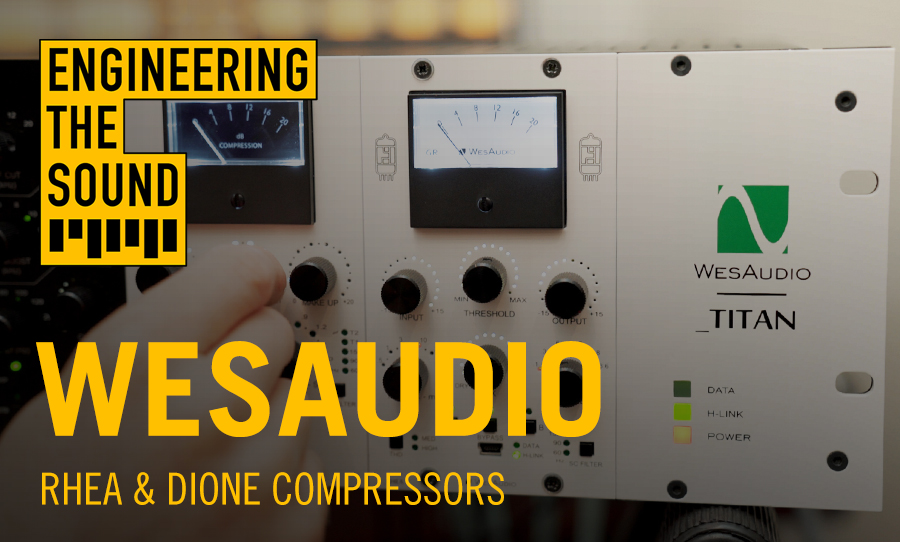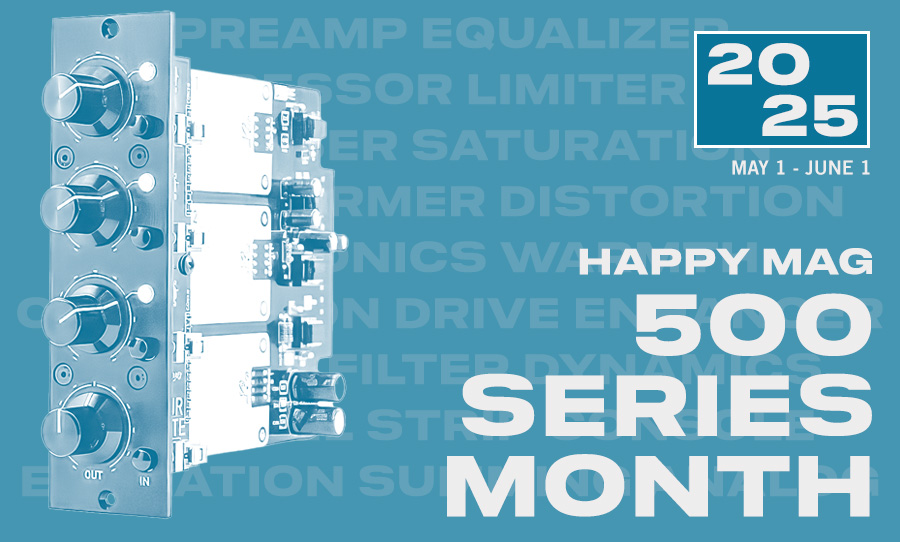Today we are looking at two brand new next generation 500 series stereo compressors, the Dione and Rhea.
WesAudio is an audio company founded in 2010 out of Poland, at the top of the game in hardware that interfaces seamlessly with software.
About 6 months ago we did a video on the Hyperion and Prometheus EQ units from Wes and talked a lot about the Titan 500 series chassis that makes it really simple to interface the units with the controller plugins that Wes creates.
We won’t go too deeply into depth about that again, but what we’ve got here is ingenious! It’s truly a game changer to have hardware units that can be controlled reliably and easily by plugins – especially as it means automating hardware over a mix or master is the same every single time! Something that’s pretty hard to get consistent otherwise.
You don’t need the Titan lunchbox to use the software feature; you can connect each module via the micro usb slot on the front, but with the Titan it’s just a matter of a single USB or ethernet cable on the back to get all this up and running.
We have had about 6 months to play with them, so we feel we can get fairly in depth here.
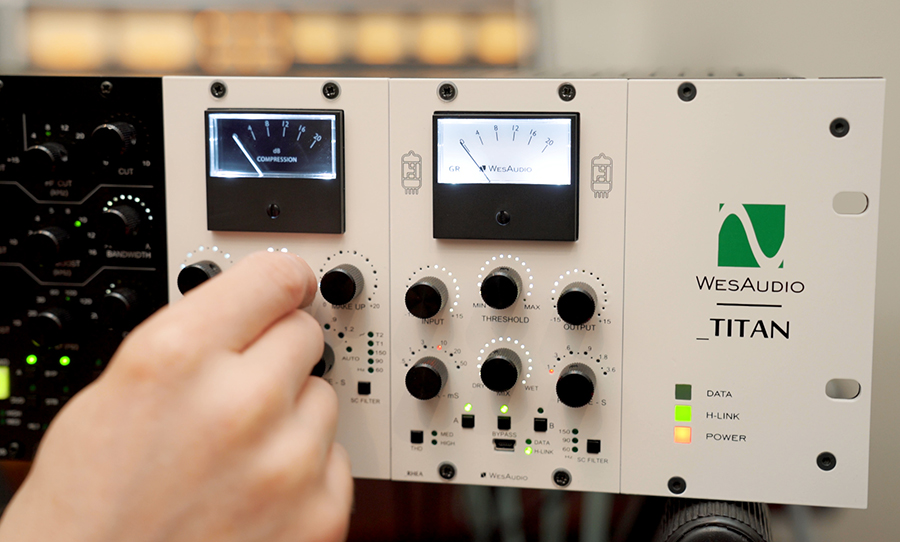
The Dione is an SSL style solid state compressor with a myriad of extra features. To be honest we can’t think of what else we’d add to make an SSL comp perfect for the modern studio.
We are going to assume that most people reading this are familiar with the famous 80s SSL G-Comp that was originally built into their mixing boards, and has shaped the sound of music since its inception.
We know some particular people get concerned about what kinds of VCAs are used in SSL style comps, but rest easy, this thing has 4 THAT 2181 VCAs, two in the signal path, and two in the sidechain.
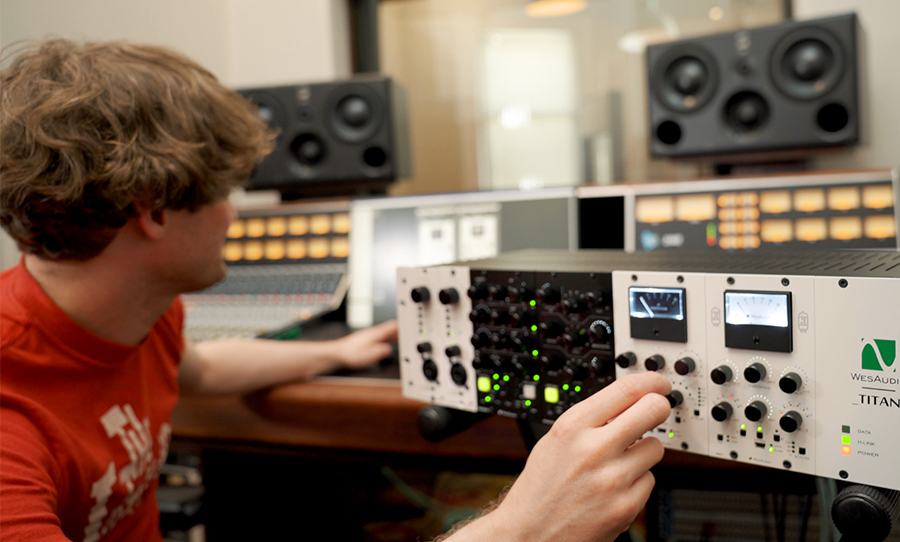
As for the extras we’ve got a 1.5:1 ratio for more subtle use, especially in a master. We’ve also got a total harmonic distortion control to add a little natural saturation to your source, and we’ve got a selectable sidechain filter with high passes at 60, 90 and 150Hz, along with two specialised ‘tilt’ filters too.
There’s also a wet and dry knob to make this box especially versatile. On top of this all there’s a recallable A and B setting so you can easily try out different settings and toggle back n forth.
Next to this we’ve got the Rhea Vari-mu tube compressor, featuring a pair of Russian dual triode 6N3P tubes.
The Rhea isn’t really based on any particular vintage var imu design, rather, so many vari mu designs are quite similar, but this kinda does it’s own thing too.
We’ve got our input, threshold, and output, for pushing, setting where the compressor kicks in, and your make up gain on the other side.
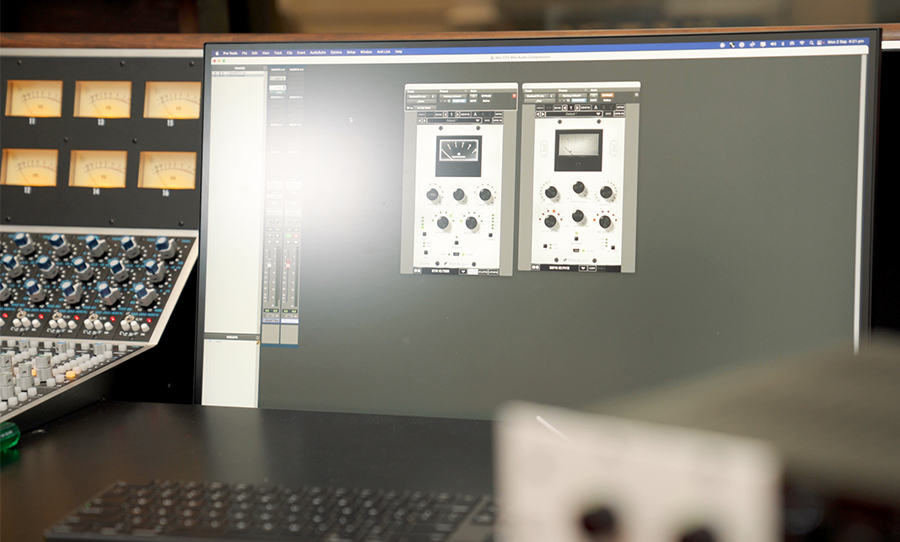
Below this we’ve got our attack, wet/dry mix, and our release time. As it’s a vari mu it’s not going to be as snappy as the solid state Dione, but you’ll instead have the richness and depth of tube compression working here.
Much like the Dione we’ve also got total harmonic distortion, and a sidechain filter at 60, 90 and 150 Hz to stop your bass end triggering the compression.
Again we’ve got a recallable A and B setting for easy comparison too. And a cool thing you can do with this box is drive it hard just for saturation and push.
We ran these two compressors over the mix bus of an unmastered track by Beth Jackson called Skaties, check out the video above to see what they both can do, and how the two styles of compression sound.
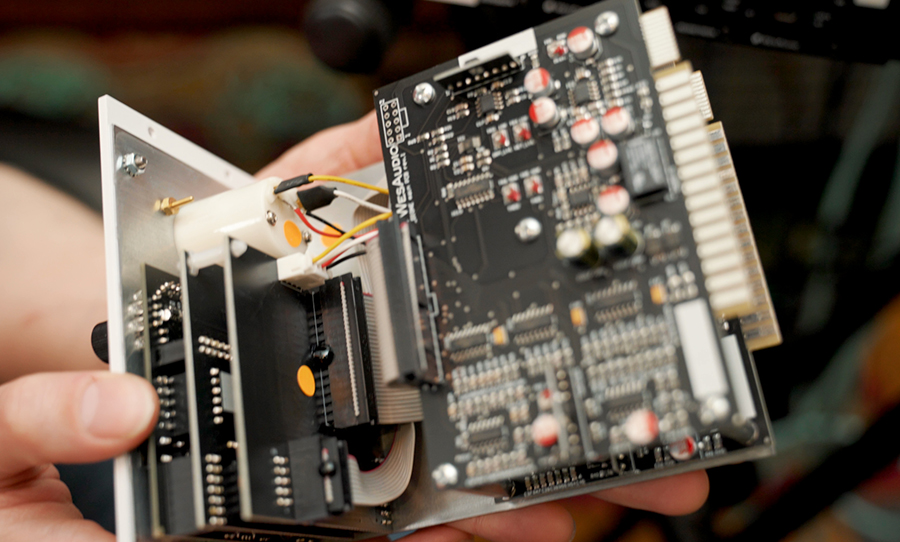
Both units fulfil my expectations very well, the Dione as an SSL style compressor with all the extra features you may ever need, and the Rhea as a vari-mu box that you can really give a push too. And both units sound expensive whilst being very decently priced for what they are, and the plug in control integration, while we were suspicious at first, is really handy, especially for being able to automate hardware units and recall those moves every single time.
The Dione retails for around 2 grand Australian, and the Rhea for around $2400. And while it’s not necessary for digital control but it does make things so much easier, the Titan lunchbox retails for around $1900 Australian.
Head over to WesAudio for more info.
